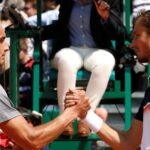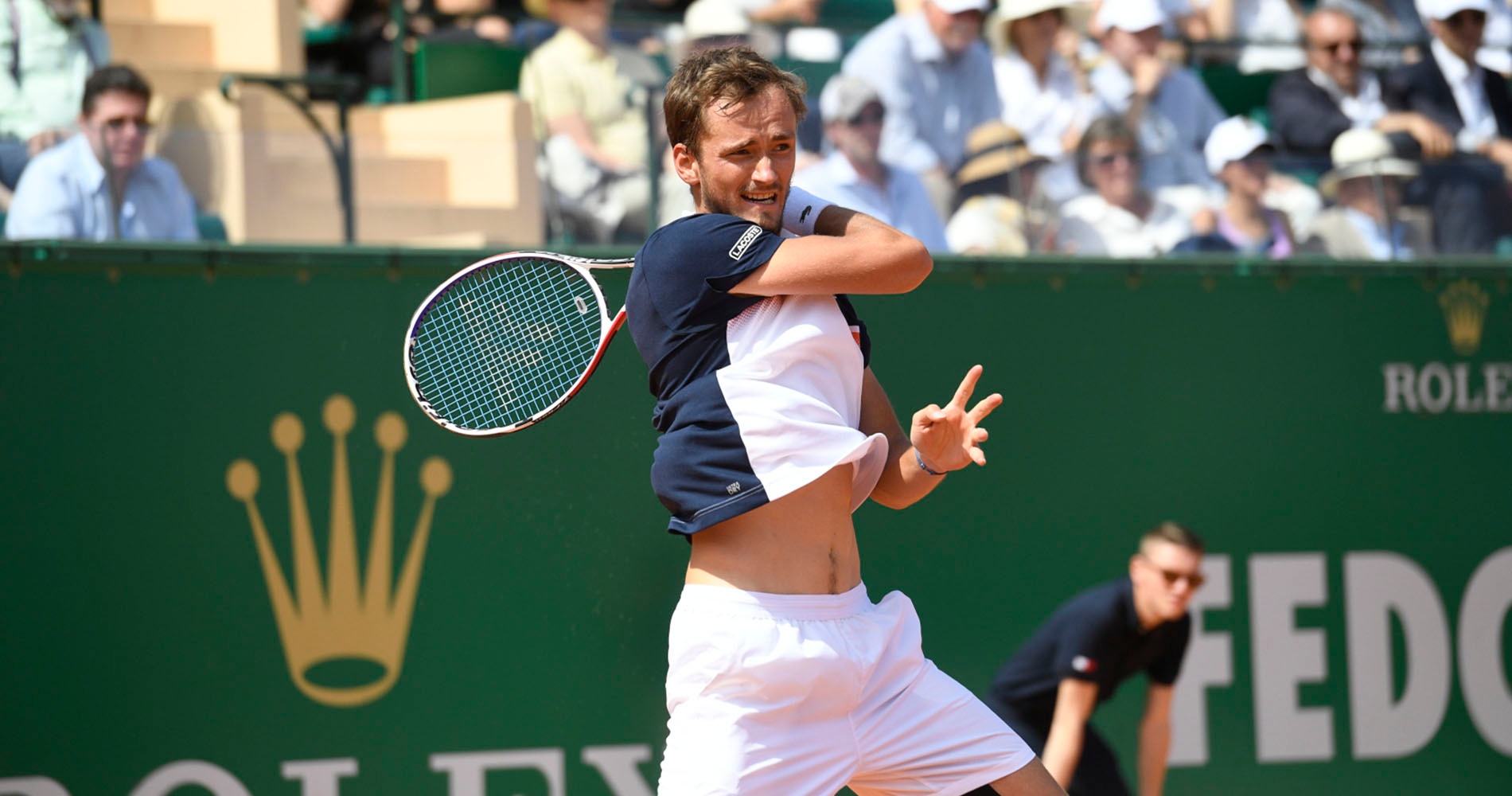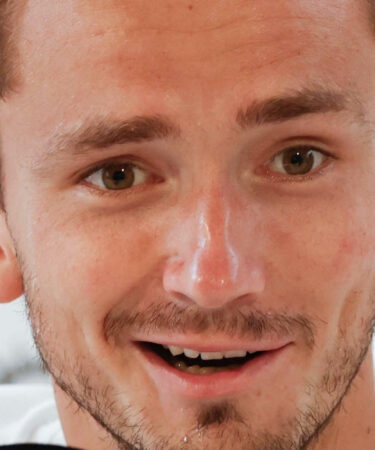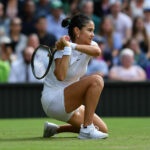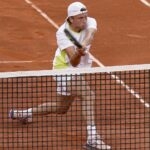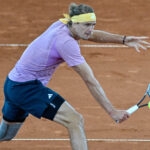Our interview with Gilles Cervara: “Daniil has rediscovered what allows him to be brilliant”
Long convinced that Daniil Medvedev can be just as effective on clay as he is on hard court, Gilles Cervara, his coach, tells us about the process by which the world No 2 got back on track at Roland-Garros, and discusses the mental challenges of his work
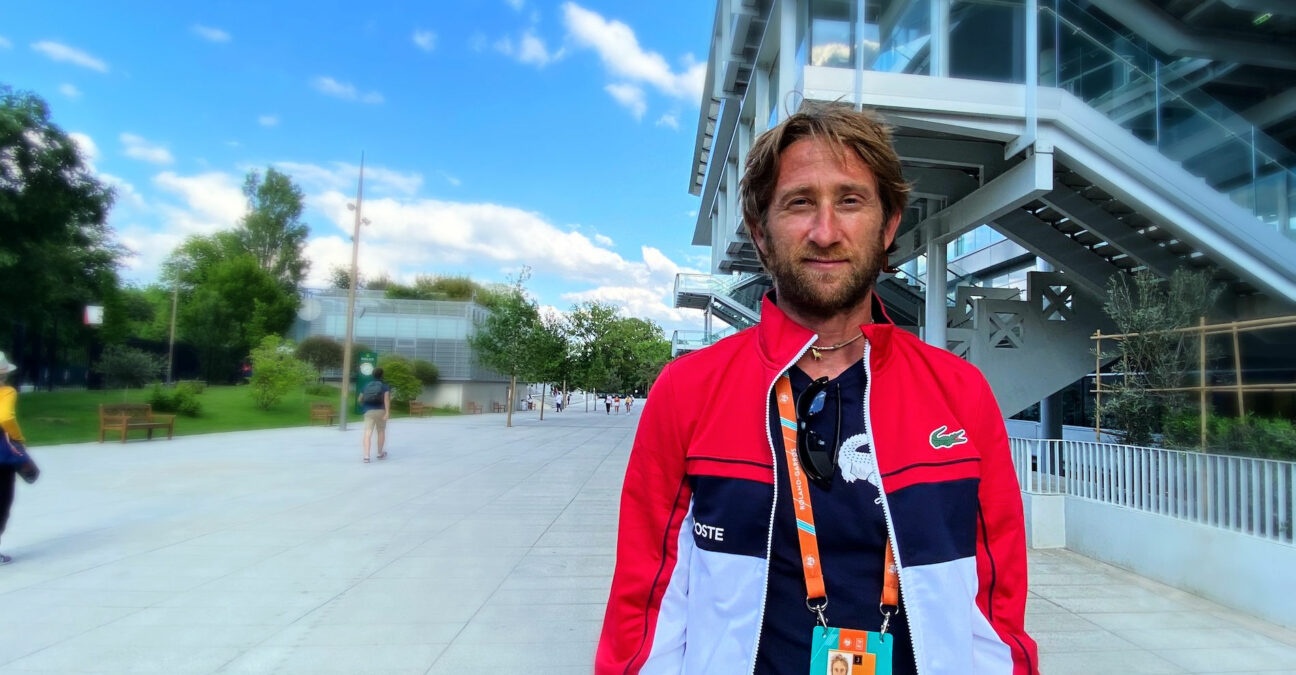 © DR
© DR
It’s an article we titled “Be like Medvedev and excel on clay: Daniil Medvedev’s tricky process“. Published at the beginning of May on Tennis Majors, it recounted the obstacles that prevented the world No 2 from having the same efficiency on clay as on hard court, despite a technical skill set that seems well suited to the terre battue. Today, in the quarter-finals of the French Open (match against Stefanos Tsitsipas on Tuesday in the night session), the Russian player apparently has the measure of the surface with a suddenness that neither his results nor his attitude in Madrid, Rome and at the UTS suggested. His coach told us at the time: “Everyone has their own limiting beliefs, in whatever field. It can still happen with Daniil about his clay court skills.” His performance at the French Open proves that Medvedev has overcome these blocks. His coach explains how.
Gilles Cervara, Daniil Medvedev’s French Open is not in line with his results during the clay court season, to say the least.
Gilles Cervara: That’s right, and the first thing I can say is that since we arrived (Wednesday, May 26), we have an incredible feeling with the place. Before this year, I hated Paris and the French Open. But here, from the first day, I said to myself that the stadium was incredible, at the same level or even higher than the other Grand Slams. You feel a harmony between one place and another, you see the green of the vegetation, there is a form of well-being. As a coach, I don’t just use that to explain the player’s performance, but there was this feeling, from the first day, of being in an ideal environment. When Daniil arrived, he felt that boost.
Yet the last image of him before Paris is his loss to Taylor Fritz at the UTS, where he loses the match and continues to say he is bad on clay.
Gilles Cervara: A lot happened during Daniil’s clay-court season. After UTS, every member of the team told him what they had to say. The training we had at the Mouratoglou Academy was very good, we were on a promising work path which was overshadowed by the UTS. The defeat against Moutet was not catastrophic, notably because Moutet had played very well. But on the second day, with this match against Fritz, it was a disaster from the first to the last point.
We didn’t know what to expect at Roland-Garros. We didn’t make a big deal of it. We went along with Daniil’s good energy and all the work done beforehand can finally come to the fore here – in particular on the mental level, and I insist on this point because we don’t talk about it enough in France, or we talk about it badly. We are doing specific work with Francisca Dauzet, who brings him a lot. For the last ten days, I’ve been trying to keep Daniil in his state of excellence and his energy because I see that he is in his element.
He convinces himself, so everything works.
Gilles Cervara on Daniil Medvedev
Tennis-wise, he seems particularly comfortable with the Wilson ball. He says he can play with it as well as on hard court. You told us six weeks ago that he needed to convince himself of his potential on clay, and obviously that conviction came from the ball.
Gilles Cervara: It’s true that it was an external element that allowed him to have an impact on what he was doing. It allowed him to get back on track and to rediscover what allows him to be brilliant. He feels that he can do what works for him. From then on, not everything can be explained in terms of how his brain picks up the situation. He convinces himself, so everything works. It’s very special.
He was quite honest in acknowledging that the draw, with Nadal in Djokovic’s half, was an opportunity. Do you also feel that there is a rare opportunity?
Gilles Cervara: The first rounds he played, against players who allowed him to play like on hard court, maintained this feeling of success (Bublik, Paul, Opelka, Garin). Now we’re in the quarter-finals against Tsitsipas, who is the other No 1 player on this surface [in addition to Nadal], so I can’t project anything like that. We’re in the last few kilometres now.
You talked about mental health at the beginning of this interview. Daniil has a very particular psychology because we see him feeding off the positive energy of the public, which he asked for at the end of his round of 16 match, whereas he fed off the negative energy at the 2019 US Open.
Gilles Cervara: Yes, he has an openness of heart – which is not insignificant, when we talk about mental work – quite beautiful to see. As a coach, when I see him cheering on the court, I think it’s great to see him give off this energy.
In their last Grand Slam match, in the semi-finals in Melbourne, Medvedev quickly dismantled Tsitsipas (6-4, 6-2, 7-5). Is that a precedent you can build on?
Gilles Cervara: I feel like we are the underdog more than the favourite. I think Stefanos has had such an impressive start to the season, especially on clay, that Daniil will have to play a superb match to upset him. It’s another game. As a coach, it’s not a preparation factor for me. I don’t know about how it will be on the court, it’s possible that there are still memories [of the match in Melbourne].
The match will take place in a night session, so behind closed doors. Is this an issue for the preparation of the match?
Gilles Cervara: No, I’m not worried about that. That said, even if I understand the economic reasons for the sale of rights to Amazon Prime Video [for French broadcast], these night sessions give the impression that there is a break in the tournament. Other coaches I spoke to shared this feeling: evening matches are not part of the culture of the French Open, unlike the other Grand Slams. In the evening at the hotel, you feel disconnected from the tournament.
We must ask ourselves questions about the environment and the culture.
Gilles Cervara on the issues facing French tennis
On another subject, a new national team has been in charge of French tennis since the election of Gilles Moretton. You were not invited to the round table organised on Sunday at Roland-Garros to reflect on the way French tennis is organised. Would you be interested?
Gilles Cervara: Of course. If someone thinks that I can have a role and something to contribute, with great humility I’m interested. My background is atypical and contains many useful and powerful things for the high level. Now, I am not a decision-maker.
Do you have an opinion on why French tennis can no longer send a singles player to the third round of Roland-Garros?
Gilles Cervara: We need to think about what could have caused this. Is it a question of the players’ potential? I don’t have the answer because I don’t know them all. But if we start from the principle that the potential of the players existed, we must ask ourselves questions about the environment and the culture in which the federation evolved. It’s a big job. There are new people in place, who have their own vision. I don’t know them. When Daniil asked me to be his coach, he confirmed that I had carte blanche to organise myself and I ran my own business like that. I think they have the same approach.
